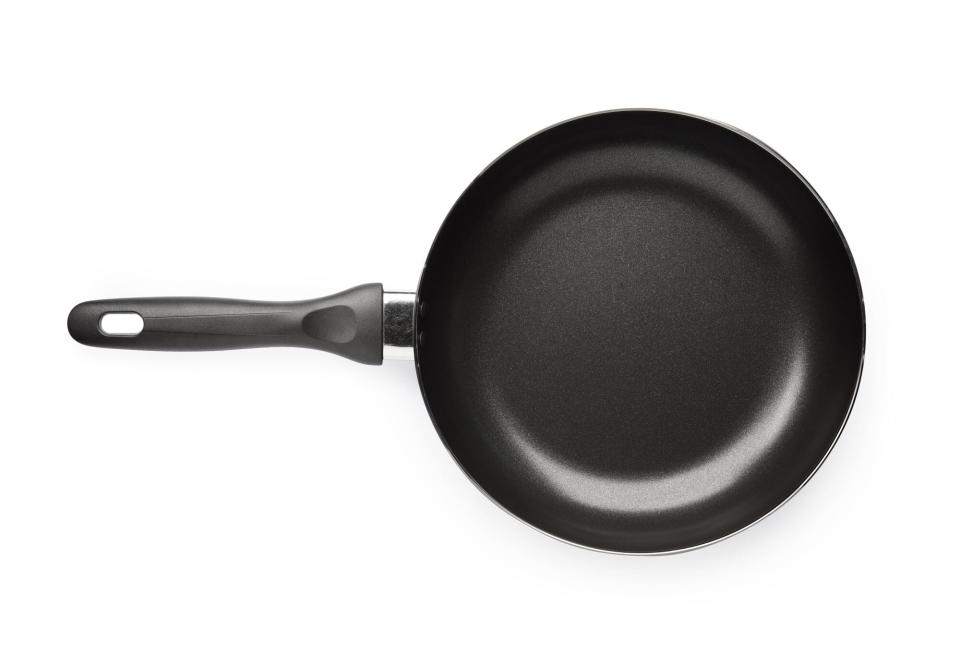Why You Should Never Use Cooking Spray on Your Nonstick Pans
Don't tell my grandma, but nonstick pans just might beat cast-iron for frying eggs. I mean, they just slip right out of the pan! While they aren't quite as beloved as the versatile and classic cast-iron skillet, nonstick pans are extremely useful in the kitchen for whipping up frittatas, pancakes, stir-fries, or anything that might stick to the pan. Of course, that seemingly magic ability only works if you take care of your pan, and nonstick pans do need a little extra TLC.
Most people know not to use metal utensils and cooking tools that can scratch the nonstick surface. Most folks also know not to put nonstick pans in the dishwasher, where the heat and detergent can damage the pan. There is one more important thing to know, though: Don't use cooking spray on your nonstick pans, either.

Getty/LoveTheWind
Cooking sprays like PAM contain something called lecithin. While it's harmless enough to use on most cookware, lecithin has the unfortunate ability to stick to a nonstick coating. It sticks so much that it builds up and becomes very hard to remove, eventually degrading the cooking surface and causing food to stick. As Real Simple warns, using cooking spray is "a surefire way to ruin your skillet's nonstick coating."
It's a known issue, too. Real Simple points out that Anolon, who makes nonstick pans, tells customers to avoid using cooking sprays entirely. They even warn customers that using cooking sprays "will void your product warranty." Yikes!
Their recommendation is to skip the cooking spray and opt for a refillable manual oil mister, which can be filled with any cooking oil you prefer. It's not quite as easy as PAM, but at least it won't ruin your pan. One other thing to keep in mind when working with nonstick pans is that when you do add the oil or whatever fat you prefer, do it right when you put the pan on the heat. According to Today, putting grease in a cold nonstick pan helps it work better and cuts down on any potentially harmful fumes.
